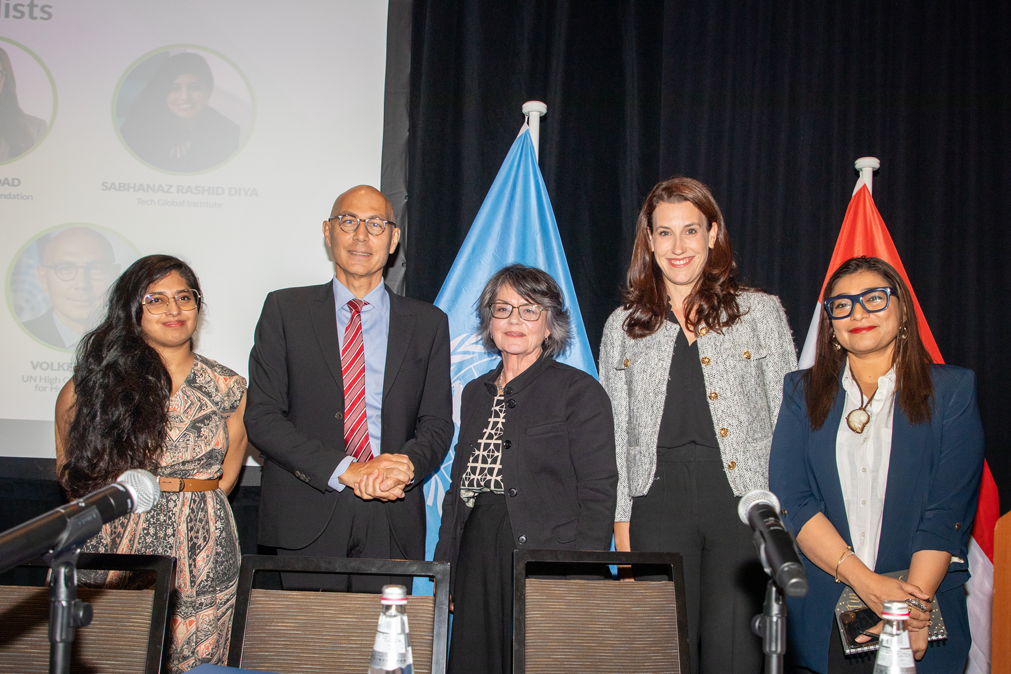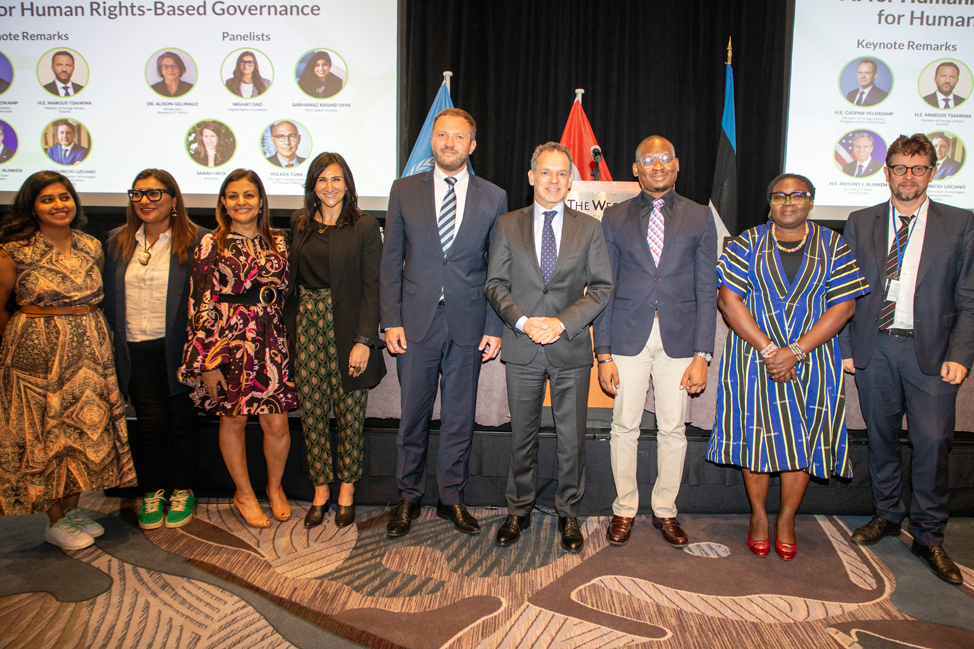On Monday, 23 September, on the margins of the 79th UN General Assembly, the Kingdom of the Netherlands, 2024 Chair of the Freedom Online Coalition (FOC), hosted the ministerial side-event “AI for Humanity: Charting the Global Course for Human Rights-Based Governance.” The event, held in New York City, convened high-level representatives of FOC Member States, members of the multistakeholder Advisory Network, and external stakeholders from government, UN bodies, civil society, and the private sector, to explore how human rights standards can be effectively integrated into AI governance frameworks.
The Minister of Foreign Affairs of the Kingdom of the Netherlands, Caspar Veldkamp, opened the event with keynote remarks, underscoring that the protection of human rights does not hinder economic growth, and is conducive to creating healthier, more productive, and stronger societies. Minister Veldkamp highlighted the importance of ensuring that AI systems respect privacy, fairness, and equality, and called for robust international standards, norms, and governance for responsible AI. The Minister further highlighted the importance of broad international cooperation to enable the best chance of “harnessing AI for the UN Sustainable Development Goals (SDGs) and to mitigate the human rights risks that AI can pose”, and reaffirmed the role of the FOC as a vital multistakeholder platform for protecting human rights in the digital age.
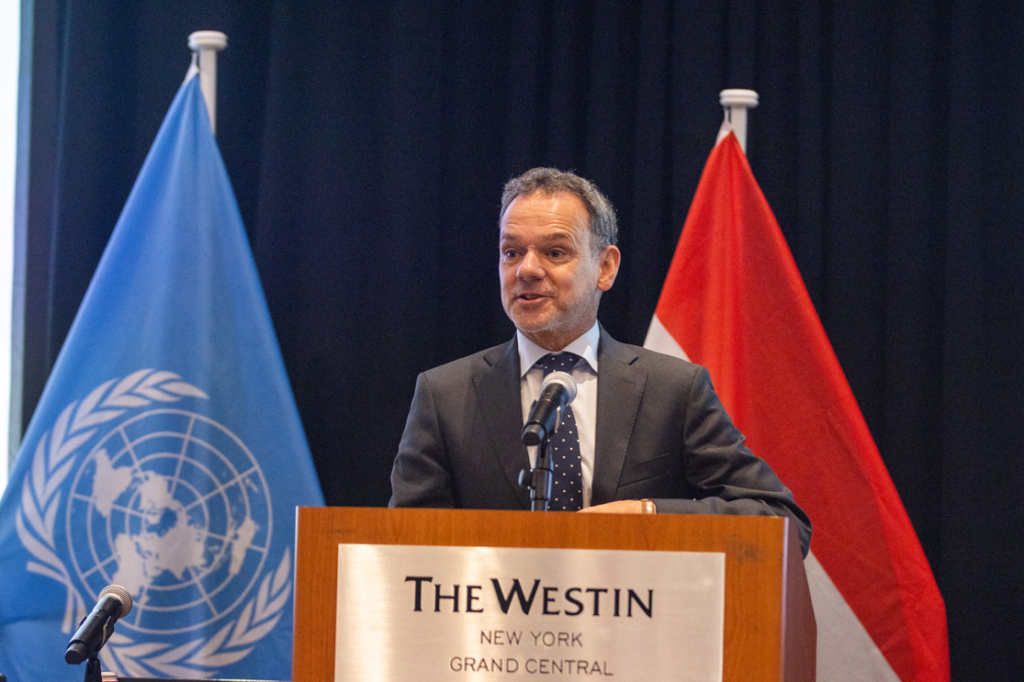

The event also provided an opportunity for the Coalition to welcome Colombia as its 41st Member, and to highlight the country’s pledge to advance a rules-based, democratic, and inclusive world where human rights and fundamental freedoms are upheld in online and digital contexts. Minister of Information Technologies and Communications, Mauricio Lizcano, noted Colombia’s commitment to developing strategies that prioritise the human-centred and responsible development and use of AI technologies. Minister Lizcano also highlighted ongoing efforts to increase connectivity across the country, noting the government is “working to close the digital divide, and the gap of digital inclusion in Colombia, between areas, between genders, between populations, and especially in rural areas.”
U.S. Secretary of State Antony J. Blinken announced the publication of the FOC Joint Statement on Responsible Government Practices for AI Technologies, which outlines “how governments can procure and use artificial intelligence in a way that protects rights, safety, privacy for citizens.” Secretary Blinken called on FOC governments and Coalition partners to swiftly implement the principles, and underscored the fast-moving pace at which AI technologies are being developed and deployed, with authoritarian regimes determined to co-opt and abuse technology to repress their people. The Secretary emphasised the need for the FOC community to be equally determined in its mission to defend freedom online, and reaffirmed the importance of engaging a broad range of stakeholders among governments, civil society, the private sector, and NGOs.
Estonian Minister of Foreign Affairs Margus Tsahkna announced that Estonia will assume the Chairship of the FOC in 2025. Minister Tsahkna emphasised the need for technology to work for all, noting that “we must prevent copying existing inequalities and ensure that technology is inclusive, and works for everyone, especially those that have been marginalized”. The Minister also underscored the crucial role of the Global Digital Compact and World Summit on the Information Society processes as steps toward “a framework for the responsible and inclusive governance of technology”, with the governance of the Internet and digital technologies being at the core of Estonia’s Chairship in 2025.
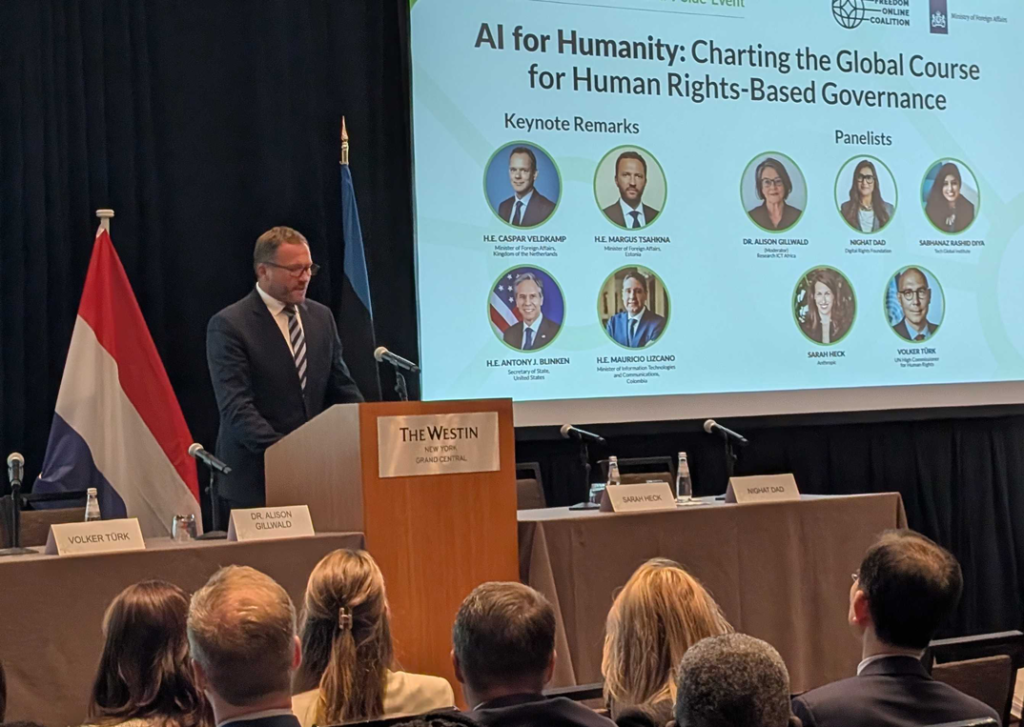
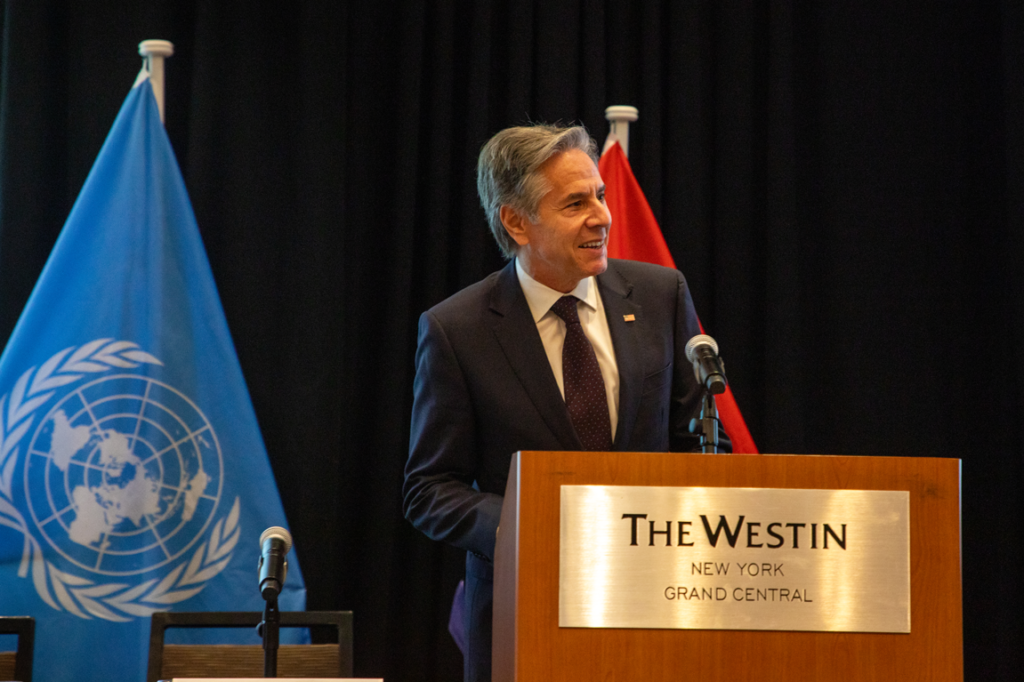
The panel discussion, moderated by Dr. Alison Gillwald, Executive Director of Research ICT Africa and member of the FOC Advisory Network, brought together prominent voices from both the civil society, international organisations, and the private sector. The panellists included Volker Türk, UN High Commissioner for Human Rights; Sabhanaz Rashid Diya, Executive Director of the Tech Global Institute; Nighat Dad, Executive Director of the Digital Rights Foundation and HLAB-AI Member; and, Sarah Heck, Head of Policy Planning and Programs at Anthropic.
The panellists, while acknowledging the opportunities and potential of AI technologies to enhance individual well-being, accelerate progress towards the SDGs, and promote and protect human rights, noted these technologies pose risks to these same human rights when developed and used without the appropriate safeguards and policy infrastructure. Emphasising the need for AI governance frameworks to be aligned with international human rights law, particularly the Universal Declaration of Human Rights, the panellists underlined the importance of integrating and operationalising human rights principles into AI development and use through multistakeholder efforts.
The discussion also highlighted that economic development should not come at the cost of human rights, and that there is a significant need for more inclusive frameworks to address inequalities. The panel referenced the recently published report of the UN High-Level Advisory Body on AI, emphasising recommendations and findings related to representation gaps and the importance of empowering civil society organisations from the global South to shape discussions around AI governance. Overall, the panel underscored the need for comprehensive governance frameworks, equitable representation, and multistakeholder collaboration to ensure AI is developed and used in ways that promote and protect human rights.
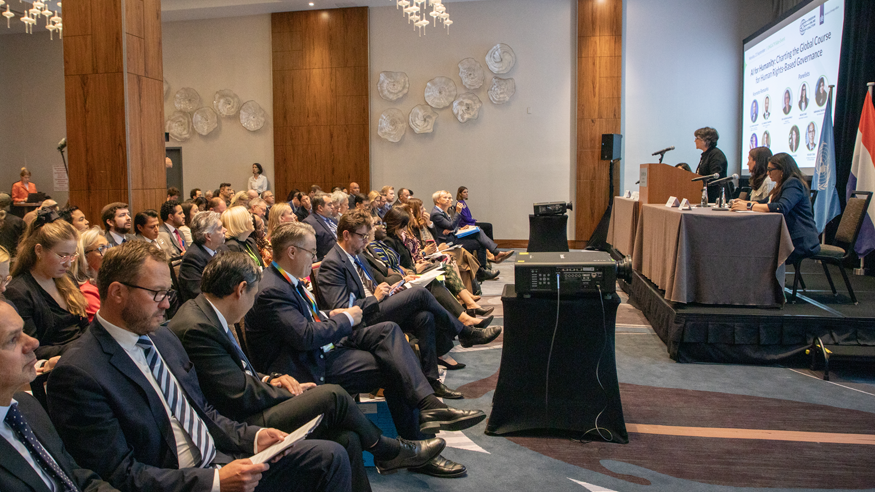
Following the panel session, remarks were provided by high-level representatives of FOC governments and members of the FOC Advisory Network. The speakers included Tobias Lindner, Minister of State, Germany; Lasha Darsalia, First Deputy Minister of Foreign Affairs, Georgia; Henri Verdier, Ambassador for Digital Affairs, France; Dr. Winifred Nafisa Mahama, Director of Information Services, Ghana; Rose Jackson, Director, Atlantic Council; Adeboye Adegoke, Senior Manager, Paradigm Initiative; and, Maryana Iskander, CEO of Wikimedia Foundation.
FOC Member State representatives reaffirmed their commitment to develop comprehensive human rights-based AI governance frameworks and highlighted recently negotiated international agreements and treaties, such as the Council of Europe’s AI Convention which enshrines a commitment to check all AI measures against their impact on human rights, democracy, and the rule of law in relation to AI technologies. Civil society representatives emphasised the essential nature of community-led and transparent projects that provide accurate information to AI systems, in addition to the need for capacity building and support for national implementation of AI governance frameworks.
The side-event set the stage for further collaborative efforts to advance a human rights-based and multistakeholder approach to the governance of AI technologies, a key priority of the 2024 Program of Action. To view a recording of the full event, visit the following page: www.freedomonlinecoalition.com/ministerial-event-2024/.
